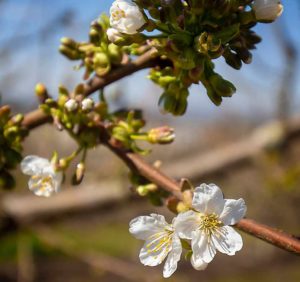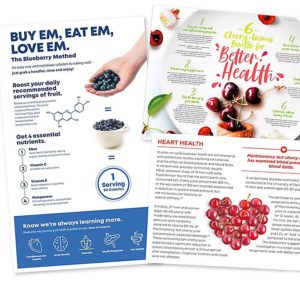Northwest cherry producers estimate they will ship 222,000 tons of sweet cherries in 2021, they announced in an industry meeting today.
Pre-season cherry forecasts are usually hazy due to changing weather and other factors. But if the estimate from today’s meeting holds, the total would surpass 2020’s crop of 195,000 tons and be roughly similar to the three-year average of 219,000 tons.
What’s more, growers are calling for large, high-quality cherries, due to places with light crops because of some frost damage and poor weather during pollination earlier in the spring.
“I think we’re going to have nice, big, exportable fruit,” said Pat Sullivan, a Pasco, Washington, cherry grower and chair of the Northwest Cherry Growers, which collectively promotes fruit from the states of Washington, Oregon, Montana, Utah and Idaho. The group held its annual 5-state meeting on Wednesday — virtually for the second year in a row due to the coronavirus pandemic.
Washington anticipates 187,000 tons, followed by Oregon at 33,000 tons, Idaho at 1,400 and Utah at 250. Montana was folded into Washington’s total.
Today’s estimate was actually the second industry prediction of the year. Two weeks ago, a field estimation team drawn from companies throughout the Northwest forecast a 237,000-ton crop, or about 23.7 million 20-pound box equivalents. That team will continue to update the crop figure as the season progresses.
Growers expect to start picking on June 1, hitting a peak harvest on June 25. What’s more, they expect the crop to be well spread out based on geography and elevation, said B.J. Thurlby, president of Northwest Cherry Growers.
California growers, who have already begun harvest, expect a crop of 81,000 tons to 90,000 tons, considerably more than last year, Thurlby said. The state is later than usual this year, meaning more of its crop could overlap with the Northwest’s.
Also in the meeting, James Michael, vice president of North American marketing, and Keith Hu, vice president of international development, announced plans to collaborate on health messaging in both domestic and overseas promotions. Hu warned that some countries, such as China and Mexico, are strict about health claims in advertising, while others, such as Korea and Thailand, are more relaxed. He has hired gymnasts to serve as promoters of the health benefits of cherries.
The pandemic forced marketers to rethink promotions, said Michael, who discussed the benefit of visiting hundreds of retailers virtually instead of one at a time in person. In-store demos have long been a favorite promotion tactic for cherry promoters, but Michael said he and retailers plan to shift more toward informational kiosks, giving pandemic restrictions more time to loosen. Michael also announced plans to advertise on Spotify “barbecue” playlists around the Fourth of July and the podcast network.
Also, the cherry growers approved renewing the group’s $18 per ton assessment, which has been the same for nearly 20 years.








Leave A Comment